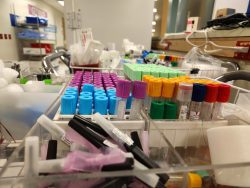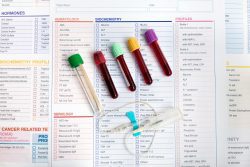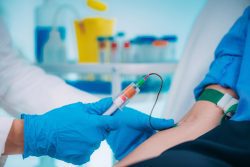Exploring Healthcare Careers: The Role of Phlebotomy in Mesa, AZ
Healthcare offers a diverse range of career opportunities, each playing a crucial role in patient care and well-being. Among these, phlebotomy stands out as a vital profession responsible for blood collection and specimen handling. In this blog, we’ll explore the world of healthcare careers with a focus on phlebotomy and the opportunities it presents.
Phlebotomists are healthcare professionals trained to draw blood from patients for various medical purposes, including diagnostic testing, transfusions, and research. Their role is integral to the healthcare system, as accurate blood collection is essential for diagnosing and monitoring medical conditions.
Phlebotomy requires a unique set of skills and responsibilities. Phlebotomists must possess excellent communication skills to interact with patients and alleviate any fears or concerns they may have about blood draws. They must also demonstrate proficiency in venipuncture techniques, ensuring minimal discomfort and maximum safety during the procedure. Additionally, phlebotomists are responsible for labeling and handling blood specimens correctly to maintain the integrity of the samples.
A career in phlebotomy offers a variety of pathways and opportunities for professional growth. Many phlebotomists begin their careers in entry-level positions, such as laboratory assistants or specimen processors, before advancing to roles with greater responsibilities. With additional training and experience, phlebotomists may pursue specialized areas within the field, such as pediatric phlebotomy, geriatric phlebotomy, or donor phlebotomy for blood banks.
Phlebotomy training programs are available at vocational schools, community colleges, and healthcare institutions. These programs typically include classroom instruction, hands-on laboratory practice, and clinical externships to provide students with a comprehensive understanding of phlebotomy techniques and procedures. Upon completing their training, aspiring phlebotomists may choose to obtain certification through professional organizations such as the National Healthcareer Association (NHA), American Medical Technologists (AMT), National Healthcare Certification Organization (NHCO), or the American Society for Clinical Pathology (ASCP).
The demand for phlebotomists continues to grow as healthcare facilities expand and medical testing becomes increasingly prevalent. Phlebotomy offers stable employment opportunities in a variety of healthcare settings, including hospitals, clinics, diagnostic laboratories, blood banks, and research facilities. With an aging population and advances in medical technology, the need for skilled phlebotomists is expected to remain strong in the years to come.
Phlebotomy is a rewarding and essential healthcare career that plays a vital role in patient care and medical diagnostics. Aspiring phlebotomists have the opportunity to make a meaningful impact on the lives of others while enjoying a stable and fulfilling career path. Whether you’re just starting your journey in healthcare or seeking to expand your skill set, phlebotomy offers a promising pathway to success in the dynamic field of healthcare.




